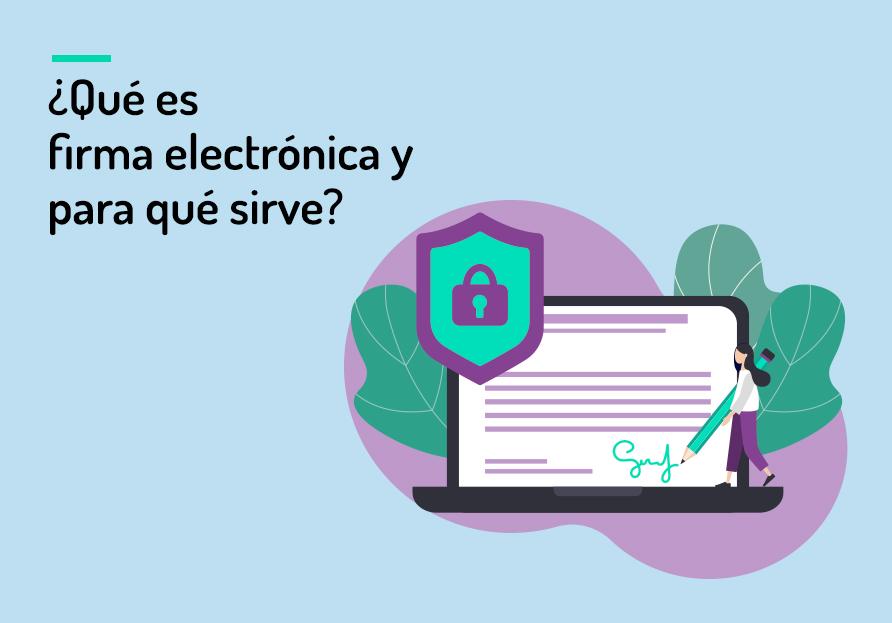
The electronic signature has become a fundamental tool in the era of digital transformation. With the acceleration caused by the pandemic, electronic signatures have gained prominence by providing a secure and efficient way to sign documents and conduct business remotely. In this article, we will discover what the electronic signature is, how it works, its benefits and how you can use it to simplify your procedures.
Find out how to improve efficiency and security in your business with our electronic signature software for businesses.
What is an electronic signature?
The electronic signature is a mechanism that guarantees the authenticity and integrity of a document or transaction carried out digitally. Unlike the handwritten signature, the electronic signature uses cryptographic methods to ensure that the document has not been modified and that it comes from the person or entity it claims to be.
Do you have to comply with any regulations or laws?
Yes, the electronic signature must comply with the regulations or law in force in each country. In the European Union, for example, the eIDAS (Electronic Identification and Trust Services) Regulation is used to regulate electronic signatures and other related services. This regulation establishes the requirements and standards that electronic signatures must meet to be considered valid and secure.
What is an electronic signature for?
The electronic signature has multiple uses and benefits. Some of its most common applications are:
– Streamline administrative procedures: With the electronic signature, you can sign documents and carry out procedures telematically, avoiding travel and saving time.
– Guarantee the authenticity and integrity of documents: Thanks to cryptographic mechanisms, electronic signatures ensure that the document has not been modified and comes from the correct person or entity.
– Reduce costs: By eliminating the need to print, sign and send physical documents, electronic signatures save on paper, ink and postage.
– Facilitating remote collaboration: Electronic signatures facilitate collaboration between individuals and companies by allowing documents to be signed remotely and shared securely.
– Sign contracts securely: the digital signature of employment contracts is a secure and legal way of signing this type of document.
What do I need to sign electronically?
To sign electronically, you will need:
If you need to sign the documents you receive securely, you must have a digital certificate: The digital certificate is an electronic document that contains your personal data and your electronic signature. You can obtain it through authorized entities that issue digital certificates. We offer you more information about what the digital certificate is for.
If, on the other hand, you need to send documents to be signed electronically with all the guarantees, you need an electronic signature platform or software. There are several platforms and software specialized in electronic signatures. MailComms Group offers you the CertySign platform , which allows the certification and signature of communications and transactions in an agile, simple, secure and highly customized way.
What types of electronic signature are there?
There are different types of electronic signatures, each with different levels of security and legal requirements. Some of the most common types of electronic signatures are:
- Simple electronic signature: This is the most basic form of electronic signature, which consists of associating a piece of data with the signed document.
- Advanced electronic signature: It provides a higher level of security and complies with the legal requirements established by the eIDAS regulation.
- Qualified electronic signature: This is the type of electronic signature with the highest level of security and legal validity. It requires a qualified digital certificate issued by a trusted entity and complies with the standards established by current regulations.
Is it possible to forge an electronic signature?
Electronic signatures, especially advanced and qualified electronic signatures, use cryptographic mechanisms that make forgery extremely difficult. However, as with any security system, it is not impossible for counterfeiting attempts to occur. Therefore, it is important to use reliable electronic signature platforms and software and to follow good security practices in the handling of digital certificates.